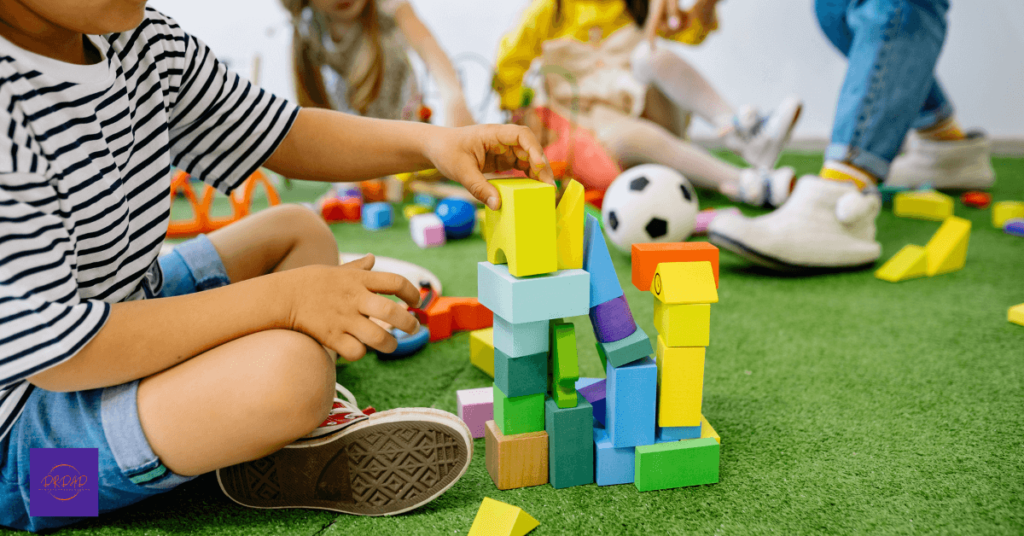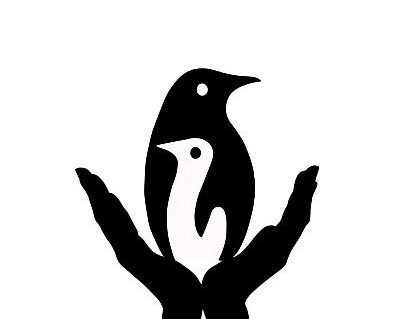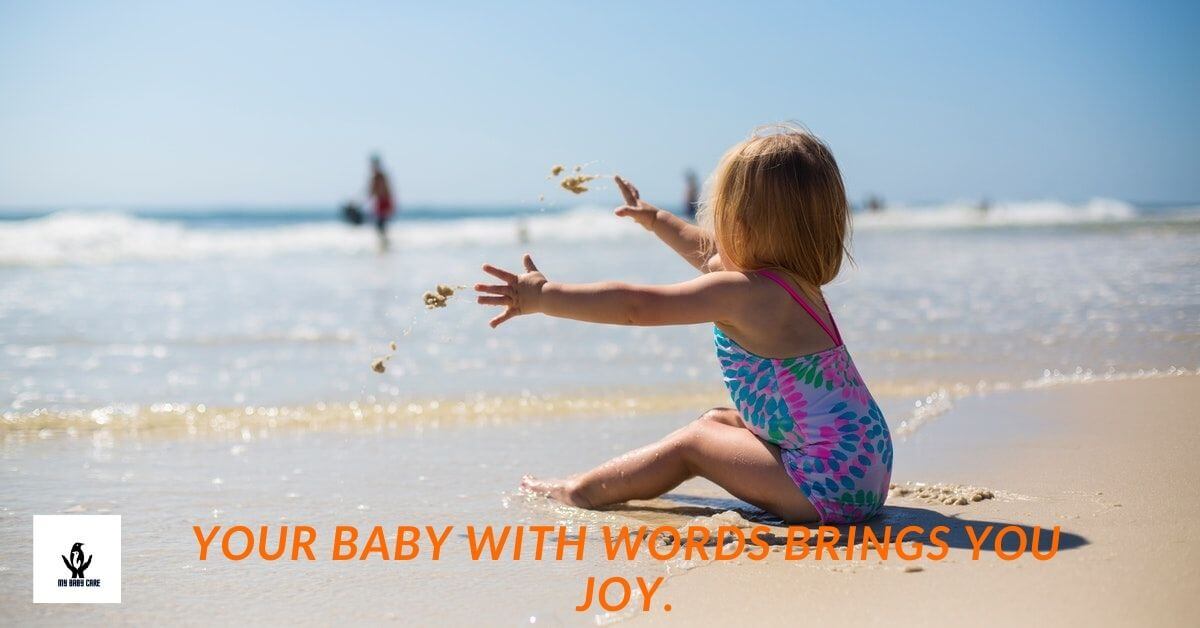Developmental milestones of your 02-month-old baby show you the pathway of a healthy toddler. Reaching three years these toddlers perform well. you can find few motor skills when your child passes the 2 months
They are showing the following features most of the time.
- more control over their bodies
- hold their heads steadier and try to lay their tummies.
- Being supported upright.
- Strong sucking reflex. Now they are trying to suck 2-3 fingers. they are showing more comfort in their lives
- Can understand voices and faces of parents or closer people. By using that ability you can create strong attachments with your baby.
- With that improved bonding with you, 2-3-month-old babies can follow your eyes. They can perform a closer look. They start to cry and fuss more.
They are trying to start communication in many ways. Also, they can bring their hands together.
your baby toddler changes from an unresponsive baby to an increasingly active and alert tiny person. This time your baby won’t sleep a little less and interacts a little more. All babies reach their developmental milestones according to their own unique developmental timelines.
Table of Contents
Smiling – True social smiling -1st developmental landmark of 2-month baby
Some of the happiest babies don’t even start true social smiling until they pass six or seven weeks of age. Some babies are having more natural smiles than others. It means all babies don’t show the same pattern with regard to social smiling. Here, babies are trying to use their whole face to show their true natural social smiling not just their mouths only. During this time period, the babies try to cuddle a lot.
They are ready to talk even though they don’t perform the social smile. As parents and caregivers you can boost their feelings and give them a smile to accelerate their origin of a smile and try to talk to them very soon they’ll be watching you.
Dear parents, don’t hesitate that your baby doesn’t show real smiling at the age of 6-7 weeks. Keep in touch with them. Give them a little support. cheer up them. They will show their true social smiling soon.
Your Baby’s Cooing
It is the vowel sounds that your baby makes first. Some babies do this within the first few weeks and some are at the end of the second month. At first, you can see breathy and melodic cooing. Then they show the throaty gurgles randomly. When you are trying to talk with your baby they are directed at you. They stare at everything around them. Sometimes it may be stuffed animals sharing their playpen or their own reflection in the cot mirror, or even a toy duck at the bumper.
These types of cooking can be considered vocal exercises and often practice for their own pleasure. Most of the time babies love to listen to their own voices. At the same time, they do various vocal experiments. Finally, they get to know which combination of throat, tongue, and mouth actions make what sounds.
The cooing is a welcome step up from crying on the communication ladder
What is after next?
Cooing is just the beginning. The baby will add laughing out loudly to that after a few weeks to a few months. This is usually for three and a half months.
After four and half months they add a few consonants to the vocal list. The initiation of these consonant variations is very broad. some babies show few consonants within three months and other categories take four to six months to show that.
The baby’s experimenting with consonants is interesting. They discover one or two at a time and repeat the same single combination at a time. It automatically produces the sounds like ba or ga or da over and over and over.
After a week or two, they find a new consonant pattern forgetting the initial set of sounds. At this stage they love repetition and they have a poor concentration span. This pattern leads to the babbling sounds of babies.That is da-da-da-da-da-da
When just passing the six months, the voices are naturally higher pitched.
After passing eight months most babies start double consonants like da-da,ma-ma, and ha-ha. Another few months later this da-da,ma-ma converts into mama.
Is language skill development the same among Babies with time?
Some normal babies develop language skills earlier than average. but some kids later.10% of kids start cooing just before the first month. and another 10% take more than three months to do the same developmental activity. The other category is somewhere in between.
The strings of continents are performed by some category before four and half months. some sets of babies take more than eight months to do the same function.
The early vocalizers make strong language skills.
If you feel your baby’s monthly milestones are far behind in performing language skills and related vocal achievements, speak to your doctor about your concerns. A hearing evaluation or other tests may be in order.
Sometimes with the second child, most parents are so busy that they are unable to notice vocal achievements. But it is better to early intervene.

How to talk to your Baby with the intent of vocal achievements
There are endless ways of communicating with a baby. Some parents find these pathways very easily and others are struggling to do this. Dear parents, If you have this problem, check out the following points that can help you.
1. Make a conversation about an activity with your 2-month-old baby
Actually to engage with your small baby at this age is a kind of skill of the mother. Here, you should narrate the procedure of whatever is done with your kid. It is like “ Now I am going to put on your nappy. Let’s remove the T-shirt over the head. Now I’m buttoning your back etc.
In the kitchen, you can join your kids and explain to them the procedure of what you are doing in the kitchen. So describe washing dishes, seasoning the saucers, etc.
When bathing, give them an explanation about the soap and rinsing and explain how the shampoo makes our hair shiny, etc.
You don’t need to be concerned about the reactions of your kid when you are talking. But try to keep the consistency of the procedure you do with your kid. Eventually, the kid is starting to listen and starts on the path of understanding.
2. Ask questions more and more
Here, you don’t need to wait until the child answers what you ask of them. You can do a job that a reporter is doing. There, your kid becomes an interviewee. The question types can vary according to the day.
Some of the questions are as follows.
- Would you like to wear green trousers?
- Isn’t the sky dark today?
- Should I take beans for dinner today?
You can use this kind of engaging question like this. Here you can pause for an answer then you can supply the answer yourself.
3. Give your baby an opportunity.
Most studies show that babies whose parents are talking with them frequently talk more easily than the other set of babies.
So give your baby a chance to coo, gurgle, or giggle. Make sure to leave an opening to the baby’s commentaries while you are talking about something.
4. Basic pronouns are difficult for kids
Keep aside the pronouns. They can’t use “I, me, you “ and other kinds of pronouns. They can use words like “ Mama”, “Grandma”, and such like words. These words depend on the person.
5. Use a high pitch tone when speaking.
Most of the time kids prefer high pitch tones. Look at your kid directly and straightforwardly and try to raise your pitch and see the reaction. Rarely do few kids prefer low pitch.
6. Imitation
Normally babies love to imitate other people’s actions. When a baby coos, you should coo back to them, if they utter a word you need to utter the same word. Then that cooing becomes a competition-like thing in that situation. You can create an enjoyable moment with that. With that enjoyment, the baby imitates your language. They eventually build up their self-esteem through that.
7. Sing with your little baby.
Kids love what they sing to them. Whatever the song or music babies love to catch that tune as much as possible most of the time. Nursery rhymes with hand gestures work most of the time with babies.
8. Read aloud with your kids.
Use simple rhyming stories to read aloud with your baby.No matter the words have no meaning to them. So it is never too early to begin little rhyming stories with little babies
Understand your Baby’s Uniqueness – Babies are Different
Most of the time your baby takes at least one year to speak their first word. It again takes another year after that to speak a few phrases for them. Before this time period, your baby tries to speak with a lot of gestures and behaviors not especially with many words.
When you are trying to fulfill the baby’s basic needs that are met in infancy and early childhood, they develop their sense of trust towards you. Also, you have an opportunity to stay closer to them.
No specific category of words that your baby speaks to first. Also, their nonverbal communication types are also different from each other. The extent of your kid’s speech differs from one kid to another depending on their personality, preferences, and needs.
Also, certain non-verbal behavior patterns are carried by babies to express their ideas regarding certain activities
Imagine your baby is making non-stop coughing around the time they are ready for a nap. Coughing might be their way of telling their tiredness.
Listening to your baby makes your job easier for them. There you can provide what the baby wants promptly rather than figuring it out by trial and error.
What Happens Especially in the First three Months
Your child’s brain grows to 90%of its adult capacity during the first three years. basic brain wiring occurs within these phenomenal three years. it resembles the crucial brain connections being made within brain cells. It is said, in three years about a thousand trillion connections are being made.
Other few and important connections of the brain are being made within 3-11 years. Changes continue to take place well past puberty. SOME BRAIN DEVELOPMENTS ARE CARRIED OUT THROUGHOUT THE LIFE.
Within these formative years, it does appear how they form the mold that will shape the person they will become.
Every time you cuddle, touch, hug and respond in various ways with your kid, you are positively stimulating them to form many brain connections. Their brains reach their full potential by talking, reading, singing, making eye contact, or cooing with them.
Also, positive parenting can teach your kids social and emotional skills. Those improved emotional skills will develop their intellectual development. Also when you are helping your kids in early childhood to regulate their behaviors and impulses, you automatically teach your child self-control.
Conclusion.
Do not panic about the growth of your 02-month -old baby. Children grew up at different speeds. Your baby will grow at his own pace with realizing the joys of interaction. The first two months have bought a lot of exciting developments and all that starts with the first smile.
Your baby looks like a chubby infant in the newborn stage at the age of 2 months. Their posterior Fontenelle is completely closed at the moment and gradually develops a good feeding pattern. But still, they experience the reflex.
these babies gradually take two-three naps daily mostly trying to catch a few joyful moments with their family members.
Helping your child to reach his or her potential is different from one to another. Also, intellectual development is different from pushing it. To do these tasks you need to provide stimulation to them. That stimulating experiences also differ from one to another. If not they might overload which leads to burnout. watch and listen carefully to your child. Then you can identify, what is best for your kid.

